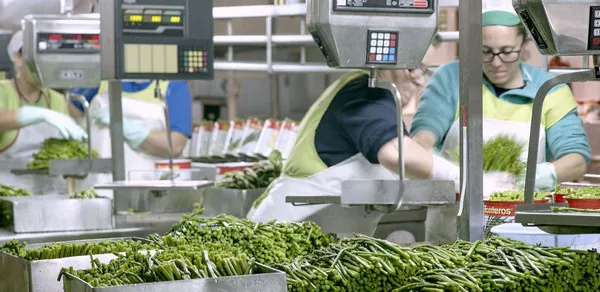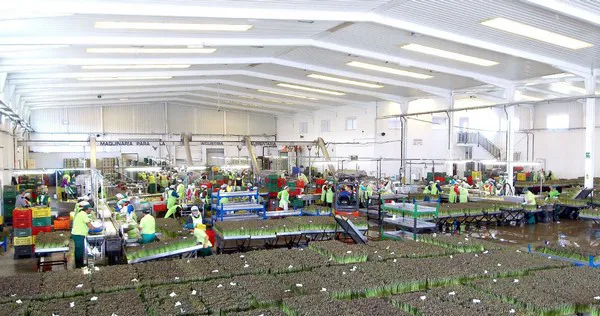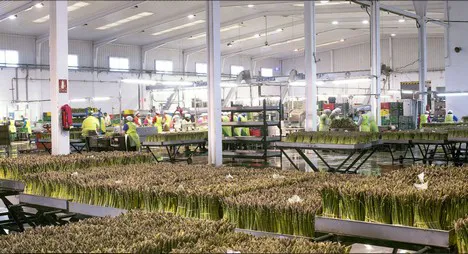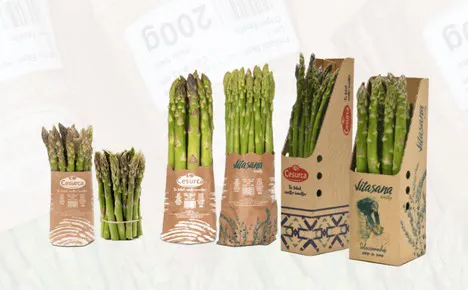The persistent cold from mid-January to early March, and the frosts when Granada's green asparagus season was starting in mid-March (with temperatures as low as -10ºC) affected the earliest crops and led to a slowdown in the harvest. In addition, the drought has contributed to a 20 to 25% decrease in production this year.

"Currently we are already in the middle of the season, but we don't have the volumes that we should have at this time of the year," stated Antonio Francisco Zamora, the president of the Centro Sur cooperative. “We've faced a significant lack of water since last year due to the lack of rainfall, which has a decisive effect on production. We now have to wait and see how the temperatures will be in April and May and if it will rain a bit or not to see if the crops can recover a bit.”

The lack of water also conditions the growth of the asparagus production area which, according to Antonio F. Zamora, has remained stable since last year due to farmers' fear of not having enough irrigation water for their crops. Moreover, producers are not planting in rain-fed lands, as was the case until now in part of the area.

These are the dates when the demand for green asparagus is the strongest in Europe. “Sales are skyrocketing as Easter approaches. Now we have a 3-4 week window when there is no significant availability of green asparagus in other European countries, with the exception of Portugal and, to a lesser extent, Italy. On the other hand, between the end of March and the beginning of April, imports from overseas practically ceased. We are noticing that there is an increasing awareness among European retailers to stock products from their own continent, as these products are transported by land and have a lower carbon footprint," the president of Centro Sur stated.
“Prices are slightly higher this season because there is lower product availability. However, costs are still much higher than two years ago, which leaves us with tighter margins. In 6 to 8 weeks, when the season ends, we'll be able to know if prices have compensated for this drop in production,” stated Antonio F. Zamora.

Green asparagus in sustainable packaging with the Cesurca brand.
Centro Sur continues to invest in asparagus-based processed products to diversify its business. At the end of last year, the cooperative presented the first dipping sauce made with avocado and asparagus and this season it will introduce frozen asparagus tips with IQF technology. “The consumption of frozen vegetables is booming because we have less and less time. The frozen product retains its full nutritional value and taste quality. It is the perfect addition or garnish and there is hardly any price fluctuation for this product."
For more information:
Miguel Ángel García
Centro Sur, S.C.A
T: +34 958332020
[email protected]
https://centro-sur.es/
